Acupuncture For Fertility–Safely Increasing Odds of Conception with Chinese Medicine
Acupuncture and Chinese herbal medicine have been used for thousands of years and are very effective for many conditions. One area where it has made incredible strides is within the realm of women’s health and fertility. Chinese medicine consists of various forms that can be beneficial during this time in a woman’s life. So whether you are planning on getting pregnant soon, have experienced miscarriage(s), or are in the process of IVF/IUI, you should know that acupuncture can help!
It is very important to remember that addressing fertility begins with a focus on healthy lifestyle choices such as diet, stress management, and adequate sleep. Also, remember that it takes an egg and sperm to make a baby, so taking into account your male counterparts’ health is very important as well.
“In Western medicine for women under age 35, infertility is defined as the inability to conceive after one year of actively trying. (Chinese medicine has a more lenient APPROACH and calls infertility after two years) For women aged 35 and over, infertility is defined as the inability to conceive after 6 months of actively trying. Infertility also includes the inability to carry pregnancies to term known as recurrent miscarriages”
How Acupuncture Can Help With Fertility
Used in conjunction with Western fertility treatments, acupuncture has been shown to increase conception rates by 26%. A study performed at Tel Aviv University reports, “When combining IUI with TCM treatments, 65.5 percent of the test group were able to conceive, compared with 39.4 percent of the control group, who received no herbal or acupuncture therapy.”
Within the United States the CDC states that 12.1% of women aged 15-44 are having issues with fertility, so know you are not alone in this process and there are many skilled practitioners willing and able to help! The American Pregnancy Organization endorses acupuncture to help with issues of infertility by helping address “problems that affect fertility such as an under-functioning thyroid (hypothyroidism) or over-functioning thyroid (hyperthyroidism) as well as the potential effect of improved ovarian and follicular function. Additionally, acupuncture can increase blood flow to the endometrium, helping to facilitate a thick, rich lining.”
Acupuncture And Fertility: What You Should Know
It is important to know that acupuncture is not always a quick fix and tends to be a process in one’s fertility journey. This process-oriented intervention seems to have cumulative impacts, so it is important to be ready to dedicate some time to it. You should dedicate at least three months to see if acupuncture is right for you. Find a practitioner that you trust and schedule the appointments to fit into your life. Your acupuncturist will develop an individual treatment plan that works for you.
If you are using acupuncture in conjunction with fertility treatments, the acupuncturists will tend not to place needles in your lower abdominal area after transfer or insemination. There are 6 contraindicated acupuncture points that will be avoided when the patient is pregnant. These points are as follows: Gallbladder 21, Stomach 12, Large Intestine 4, Spleen 6, Bladder 60, Bladder 67, and any points on the lower abdomen.
Herbal Medicine And Fertility
Chinese Herbal medicine might also be used to help balance hormones, address constitutional changes, or promote a sense of well-being and stress relief. A variety of herbal remedies can assist the body in areas such as boosting blood, increasing Qi flow to reproductive organs, and regulating menstrual cycles.
The APO states that:
“Acupuncture is often combined with herbal remedies to treat elevated follicle stimulating hormone (FSH), repeated pregnancy loss, unexplained (idiopathic) infertility, luteal phase defect, hyperprolactinemia (when not caused by a prolactinoma), polycystic ovarian syndrome (PCOS) with annovulatory cycles and male factor including men affected with sperm-DNA-fragmentation.”
Don’t Stress…There is Help Out There!
It is also important to remember to stay calm, centered, and positive throughout this process, as stress can have a major negative impact on your fertility. (Here are some some stress relief tips.) A study done at Harvard showed that:
“Stress reduces the hypothalamic-anterior-pituitary-ovarian axis function, and should thus be considered in the infertility workup. Acupuncture releases endorphins that mitigate one’s response to stressful stimuli, thus enhancing the possibility of conception. Biologically, since the hypothalamus regulates both stress responses as well as the sex hormones, it’s easy to see how stress may contribute to infertility in some women.”
It is not completely understood how stress impacts the reproductive system, but the study of psychoneuroimmunology shows the connection between the body and mind, and how our emotions can actually impact our physiology. This may be because when we are under extreme states of mental stress, the pituitary gland can produce increased amounts of prolactin, a hormone that aids breast development (and lactation in pregnant women) and if found in excess may lead to infertility.
We do know that extreme physical stress can also impact a woman's fertility as it can lead to irregular cycles, anovulation, or suppression of a woman's menstrual cycle. This is often seen in female extreme athletes or marathon runners. Know that stress can lower sperm counts as well.
Factors That Impact Fertility (For Men And Women)
Tobacco smoking/chewing
Excessive Alcohol intake
High levels of emotional/physical stress
Toxic exposure
Poor Nutrition
Age
Sexual history
Benefits of Acupuncture
Stress Reduction
Increases blood flow to the reproductive system
Reduces side effects of fertility drugs
Boosts the Immune System
Increases sperm count/ motility
Increases chances of IVF success
Regulate hormones/menstrual cycle
Decrease Insulin resistance
Promote ovulation, improve uterine lining
Improve Libido
Foods To Help Boost Fertility
Healthy nutrient-dense fish- Roe, Wild caught Salmon, cod liver oil
Organic Butter and full-fat dairy
Oysters, clams and mussels
Eggs from Pasture raised hens
Liquid chlorophyll and lemon, especially to start the day!
Dark green leafy vegetables
Sweet Potatoes
Fertility Problems? What To Do
It is important to find a practitioner that you trust and has a focus on women's health and fertility especially if you are undergoing conventional fertility treatments. Set up a few consultations, or feel free to contact me! Acupuncture is very effective in helping promote a state of well-being and stress relief, increasing Qi and blood flow to specific areas, regulating hormones, and painful menstruation. Many people have found that acupuncture has been very effective during the fertility process, throughout pregnancy, and even in postnatal healing and care.
*These statements should not replace any medical advice from your doctor, just ideas to help increase your options. Make sure to check in with a well versed healthcare practitioner to see if acupuncture and Chinese herbs are right for you, especially if you are already undergoing fertility treatments.
Resources
Tel Aviv University Study
Cao, :X.D., Xu. S.F. and Lu. W.X. (1983) Inhibition of sympathetic nervous system by acupuncture. Acupuncturc Electro-Ther. Res. Int. J.,8, 25-35.
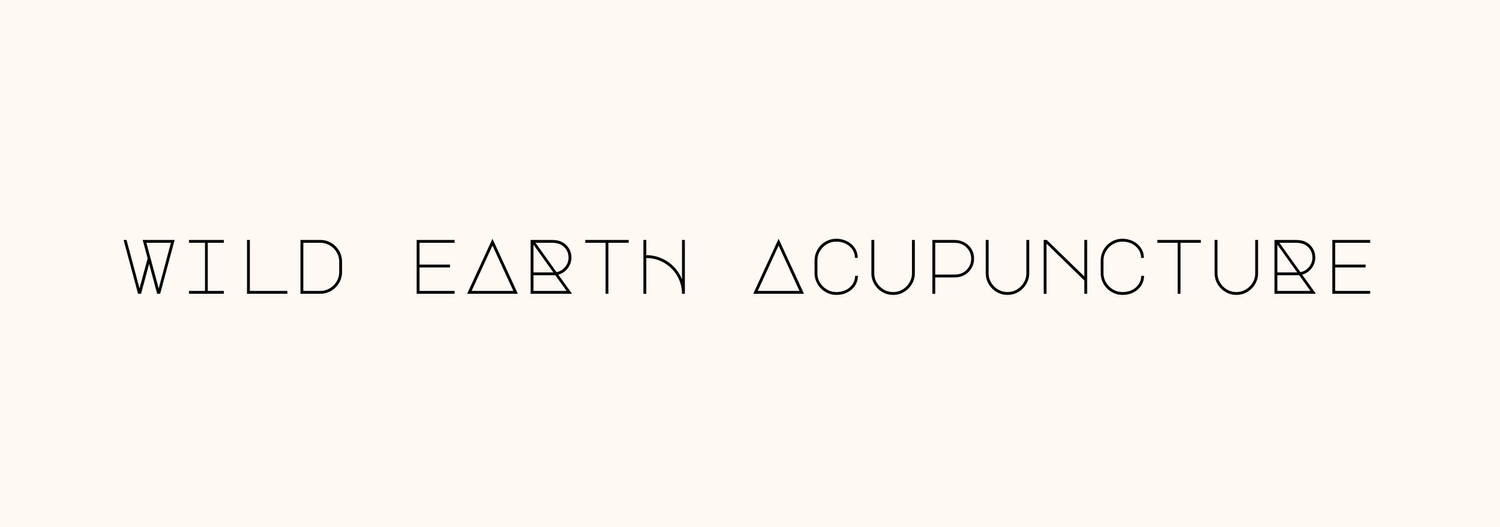



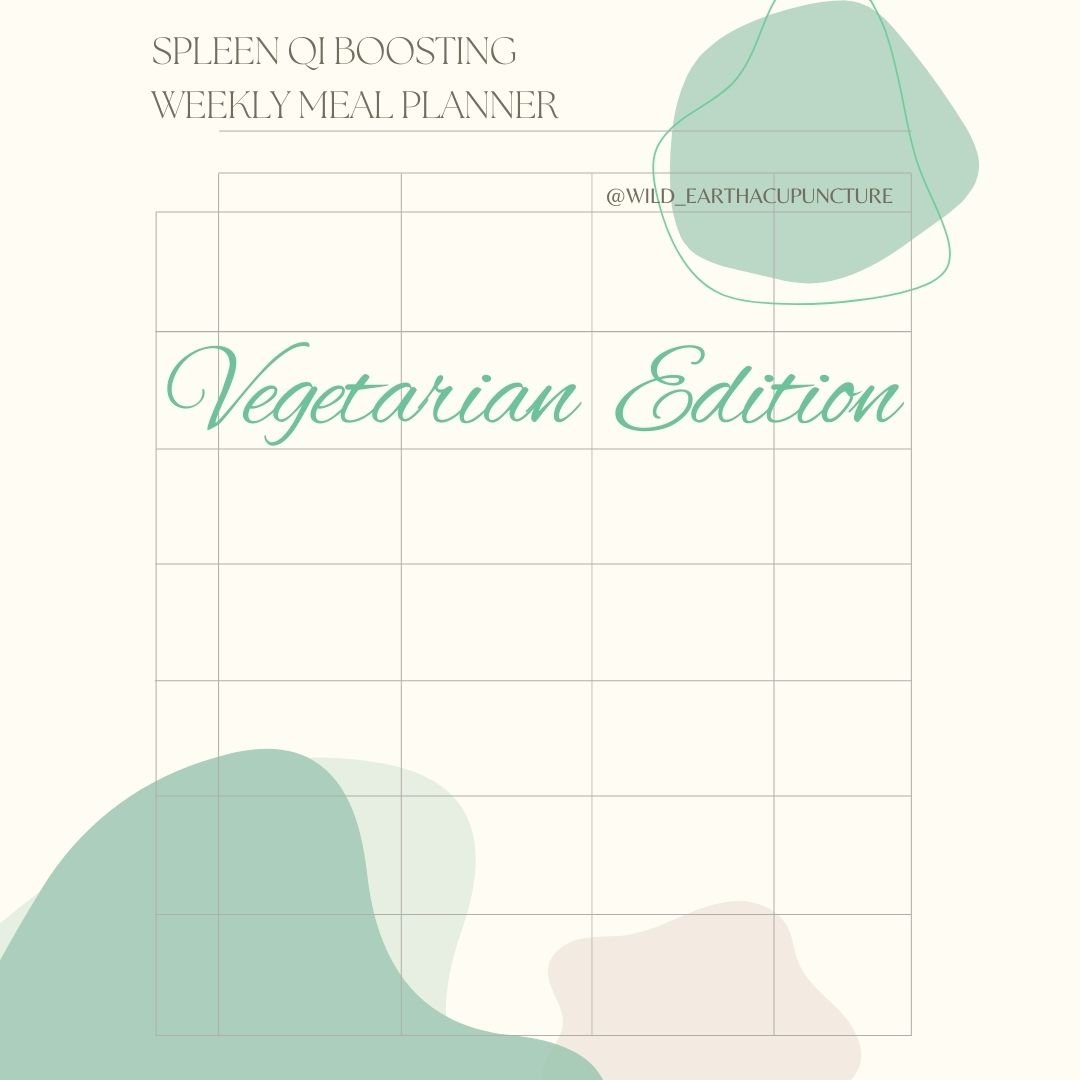
















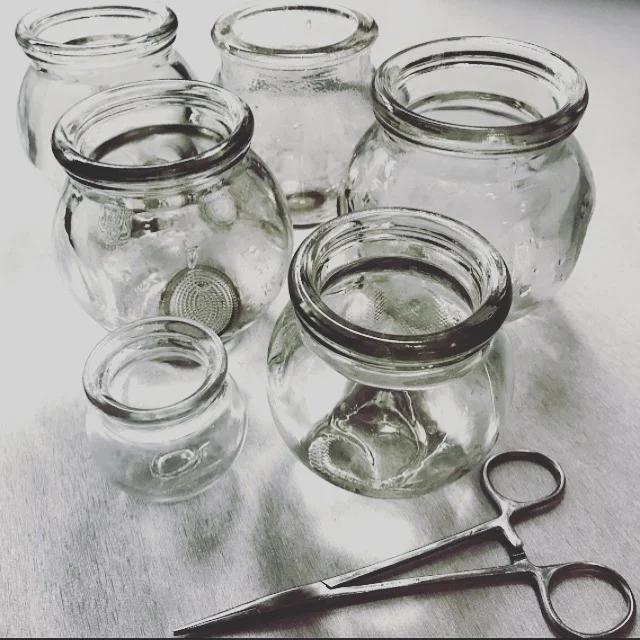

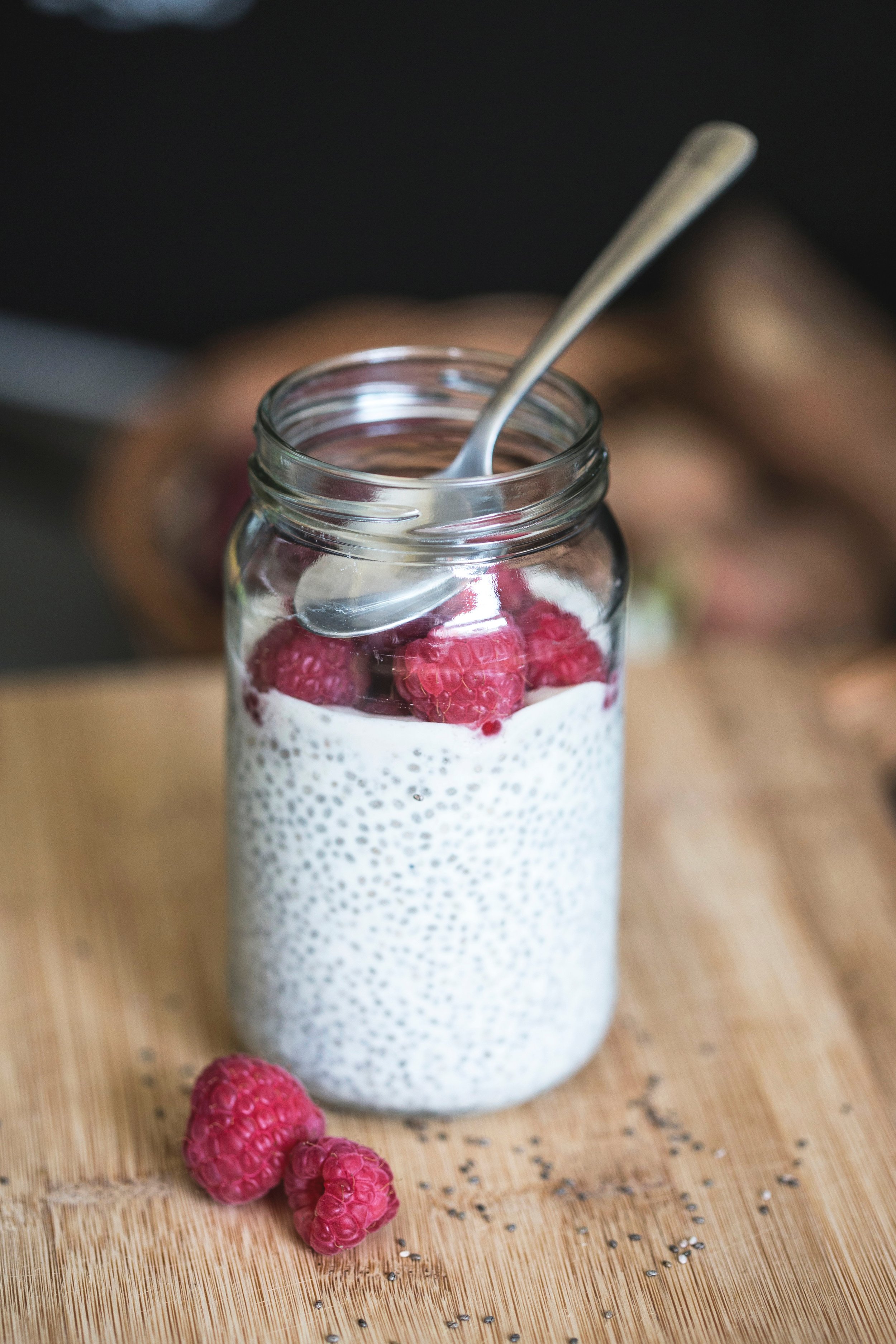





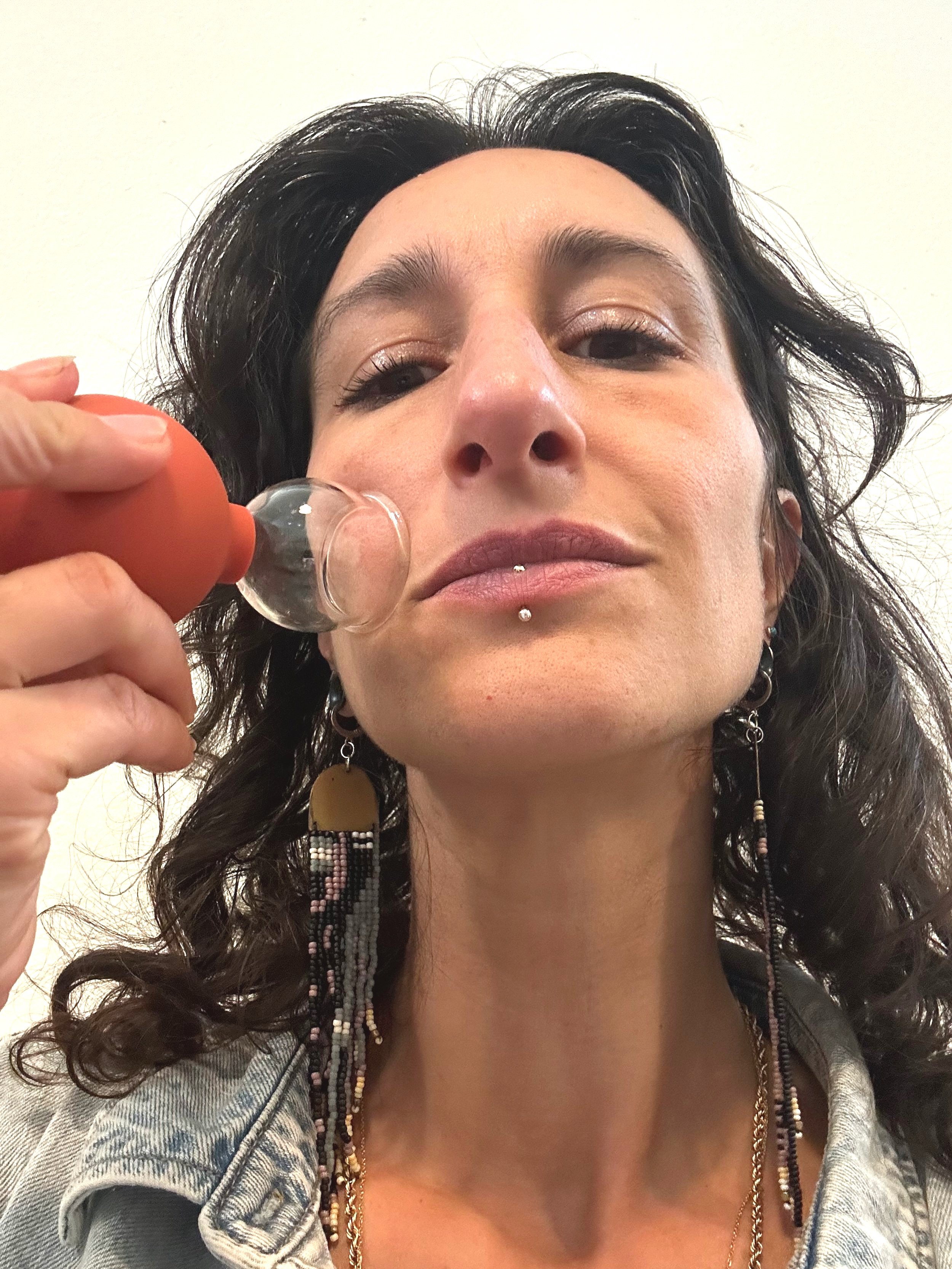









Poor digestion got you down?
This weekly meal planner is focused on helping support your digestive system and boost your Spleen Qi.
7 days of meals, recipes and tips!
It comes designed in a PDF format for easy printing- so you can pop it on the fridge for inspiration, or take it to the market with you while you shop.
It comes stocked with:
🗓️ Easy-to-follow weekly meal planner with tasty suggestions for breakfast, lunch, dinner, and snacks each day of the week.
✔️ Grocery checklist
🌿 Helpful tips to help keep your tummy happy.
😋 Yummy recipes
This guide will get you off to the right start!
Check out the new Vegetarian Weekly Planner for another week of delicious recipes ( very easy to add some baked chicken or roasted salmon etc. to any of those recipes too!
🚨UPDATED WITH EVEN MORE DELICIOUS RECIPES!🚨